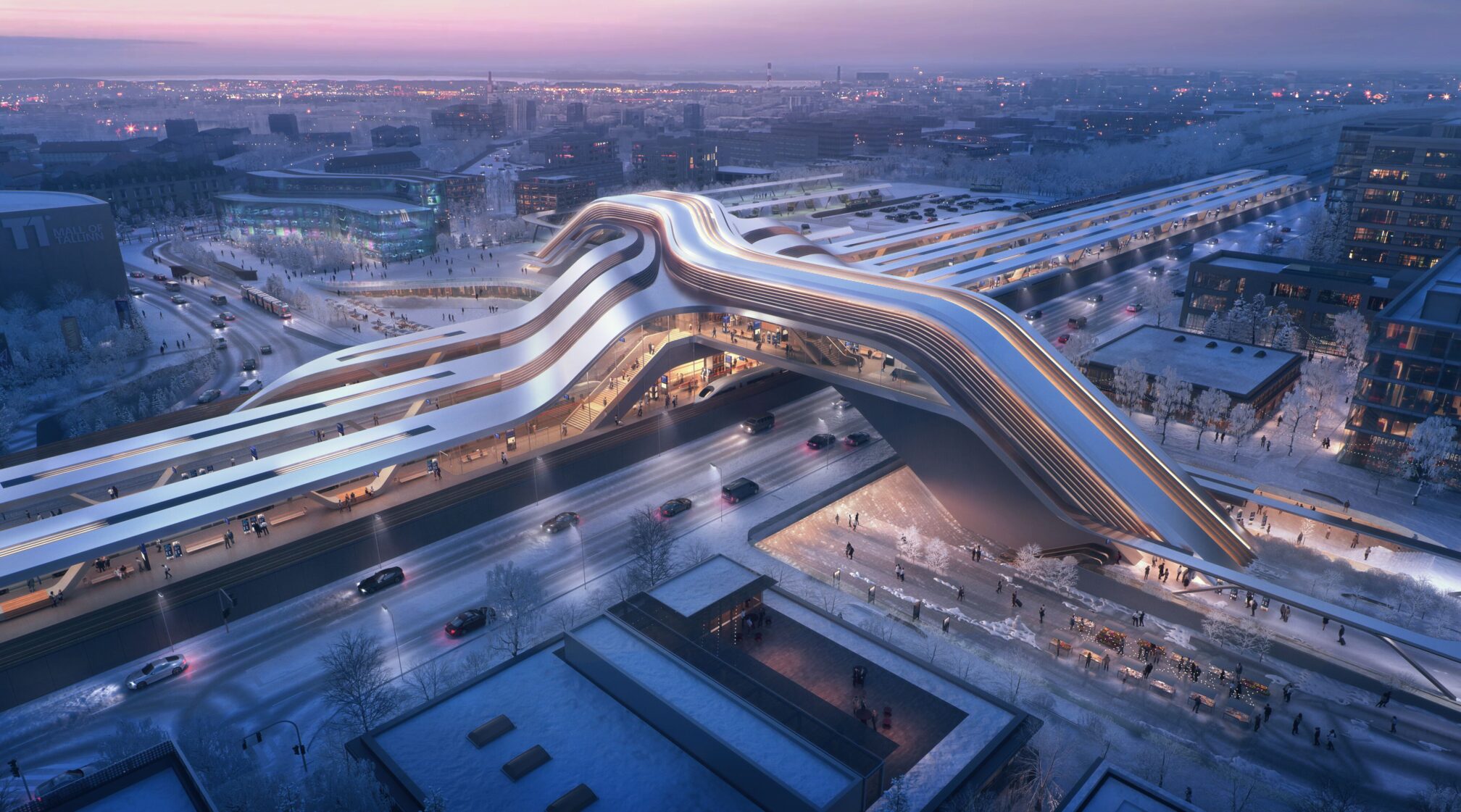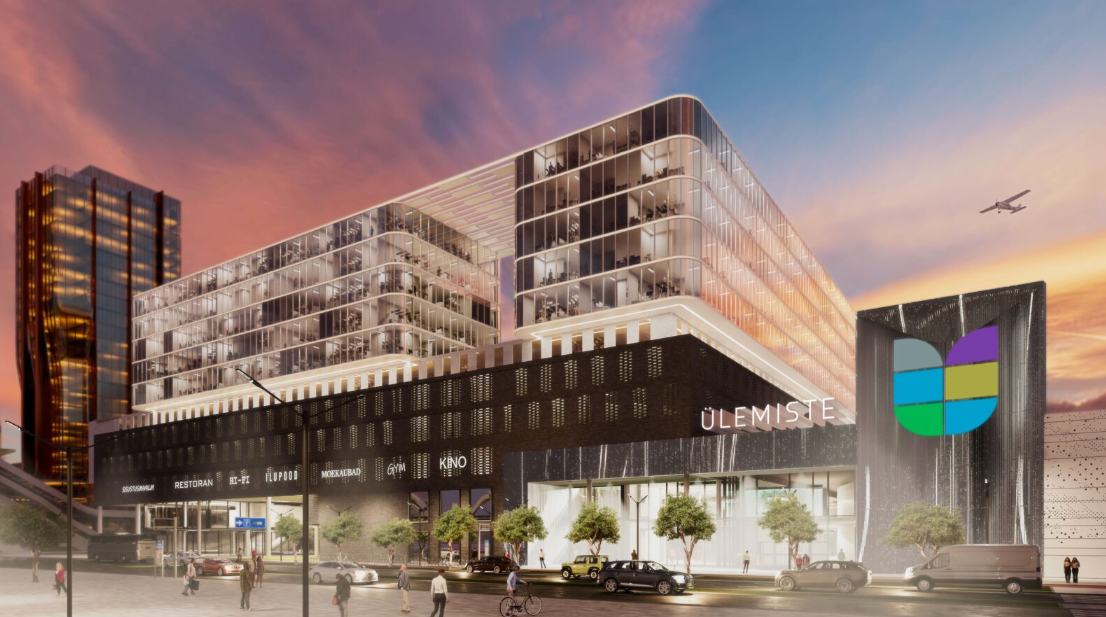Rail Baltic Ülemiste Terminal Architectural Design Competition
- Architecture, interior designZaha Hadid Architects, ESPLAN
- Lead designESPLAN

Zaha Hadid Architects (UK), in collaboration with ESPLAN, won first prize in the international architectural competition for the new Rail Baltic Ülemiste Terminal in Tallinn.
Rail Baltic is a planned 870-kilometer electrified railway line connecting Tallinn to the Lithuania–Poland border. The Ülemiste terminal will serve as the starting point of the line, linking Tallinn, Riga, and Vilnius to the broader European high-speed rail network.
The Ülemiste terminal is envisioned as a major transport hub, serving the local community, passengers arriving at Tallinn Airport, and both domestic and international rail travelers. The building’s geometry is shaped by intersecting loops and circulation routes that support intuitive navigation and seamless connections between bus, tram, and rail lines converging at the station.
The terminal has been designed in accordance with BREEAM sustainability standards, incorporating a modular, phased construction approach that allows railway operations to continue throughout the building process.
“I’ve been closely following the developments in the Ülemiste area, and in light of the public presentations of the proposed designs, I’m convinced the district is evolving into one of the most attractive and synergistic infrastructure nodes in Tallinn,” said Estonian Minister of Economic Affairs and Infrastructure Taavi Aas. “It’s becoming a true multimodal transport hub that will bring together rail, bus, and air travel.”
Rail Baltic Estonia launched the international design competition for the Ülemiste terminal in May 2019. The competition concluded on September 3rd of the same year.
The nine-member jury included Rail Baltic Estonia CEO Riia Sillave, Allan Remmelkoor (Management Board Member at Pro Kapital Eesti AS), Andrus Noor (Development Director at Estonian Railways), and Andrus Kaldalu (Supervisory Board Member at Mainor Ülemiste). The jury also featured prominent architects such as former Tallinn City Architect Endrik Mänd, Ülemiste masterplan author Mattias Agabus, former Latvian Minister of Culture Janis Dripe, and Danish architects Jesper Gottlieb and Thomas Grave-Larsen.







